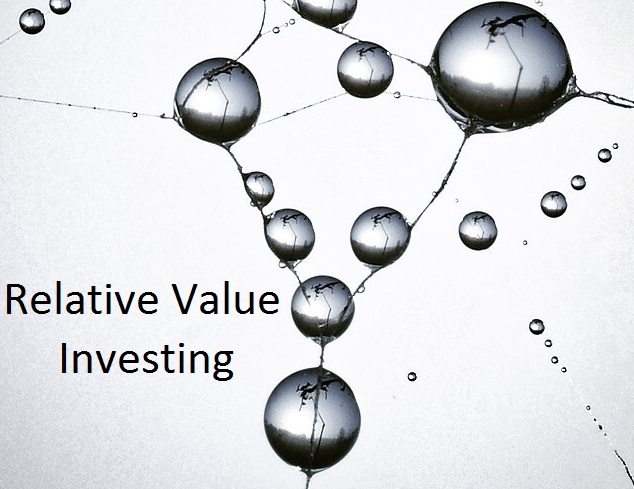source article: Exploring Markets
Joel Greenblatt is a modern pioneer in value investing. He is a hedge fund manager, author, and professor at Columbia.
1. You need to make your investing decisions simple and easy to understand:
"I think the exercise of trying to figure out how to simplify concepts has been incredibly helpful to me over the last 13 years of teaching and I hope my students have benefited from it."
2. Figure out how much you are paying for every dollar that company earns:
"I usually just look at a simple multiple to normalized earnings. If I can buy something at a very low multiple and I have confidence in the earnings stream, I don’t have to calculate a DCF to know whether I want to buy it."
3. The hardest thing to do, when investing long-term, is to have patience:
"Once again, the secret to success in following the formula strategy is patience, a quality in short supply for both professionals and individual investors alike."
4. Timing the market is very hard, but it's even harder to follow and stay up to date with everything going on in the world – so ignore it!:
"I think investors should have a large portion of their assets in equities over time. I don’t know too many people that are good at timing the market relative to macroeconomic events."
5. You need to always see stock prices as businesses and real companies:
"Stocks are not pieces of paper that bounce around, they are businesses that you value and try to buy at a discount. If you are going to buy individual stocks, you need to know how to value companies yourself."
6. If your strategy works, do not let underperformance change your mind – it happens:
"I love our strategies. We can make lots of money over time with them. But people don’t stick with it. Most people have a difficult time sticking with strategies that underperform from time to time."
7. Try to buy companies when they fall below their intrinsic value:
"Valuation is like gravity. Usually what happens is, the stock price is like a rubber band. It stretches away from value. If we’re good at valuing businesses, the rubber band will snap back."
8. Cash flows, like free cash flow, are just as important as earnings multiples:
"Many people use low price-to-book or low price-to-sales metrics to define value. We’re neither. We’re cash-flow-oriented investors, valuing businesses and buying them at a discount."
9. You need to have a system that screens and analyzes every investment you might make:
"We’re not looking for the cheapest company; we’re not looking for the best return on capital; we’re looking for those companies that have the best combinations of those two. And we rank all companies with this combined ranking and then we just buy the top batch. What we’re trying to get at is buying above-average companies, high return on capital companies but only when they’re available at below-average prices."
10. As a value investor, you are playing the long game, not the fast money game:
"Value investing works over long periods of time but doesn’t necessarily work in any particular month or year."
11. Sometimes the market crashes, and if you have cash on hand, you will be ready:
"The markets are emotional, it’s not always rational, and you’re systematically taking advantage of that by buying companies that are unreasonably cheap and good."
12. It pays to know who did well in previous years, it's just the way market psychology works right now:
"I sit on a couple of endowment boards and, you know, there are some studies that clearly show that you can predict 90% of the money flows just on who did well last year. And that’s where their money goes."
13. Spreading out your risk and approaching investing like an insurance company would is a smart thing to do:
"Think of an insurance bet. If you insure 1,000 lives, you know there’ll be some unfortunate people who bought, you know, term life insurance, that next year won’t work out for them, but you don’t know which ones they will be. So here, you have to buy a group of stocks that on average are cheap and good, or above-average stocks at below-average prices. I can’t tell you which ones are going to work out. But I can tell you, the group of stocks that don’t work out, you didn’t pay very much for them."
14. Don't buy stocks until you have a basic understanding:
"Choosing individual stocks without any idea of what you're looking for is like running through a dynamite factory with a burning match. You may live, but you're still an idiot."
15. What stock prices mean in the short-term and what they mean over the long-term are two entirely sperate worlds:
"Over the short term, Mr. Market acts like a wildly emotional guy who can buy or sell stocks at depressed or inflated prices. Over the long run, it's a completely different story. Mr. Market gets it right."
16. Before every new investment you should pause, and think about risk:
"When thinking about risk, rather than making things unnecessarily complicated, there are really two main things you should want to know about an investment strategy: 1. What is the risk of losing money following that strategy over the long term? 2. What is the risk that your chosen strategy will perform worse than alternative strategies over the long term?"
17. Having a value investing formula can change your life:
"If you just stick to buying good companies (ones that have a high return on capital) and to buying those companies only at bargain prices (at prices that give you a high earnings yield), you can end up systematically buying many of the good companies that crazy Mr. Market has decided to literally give away."

